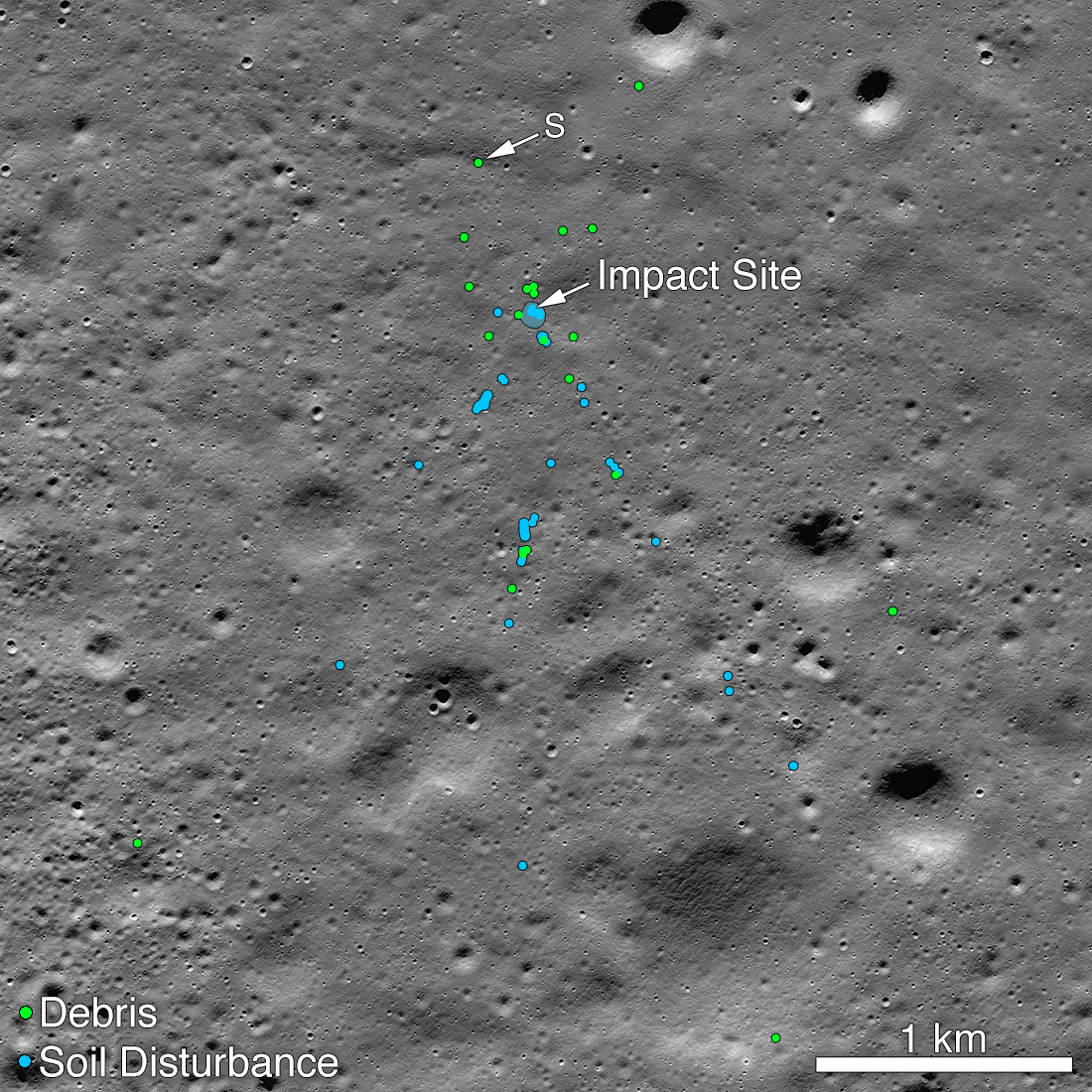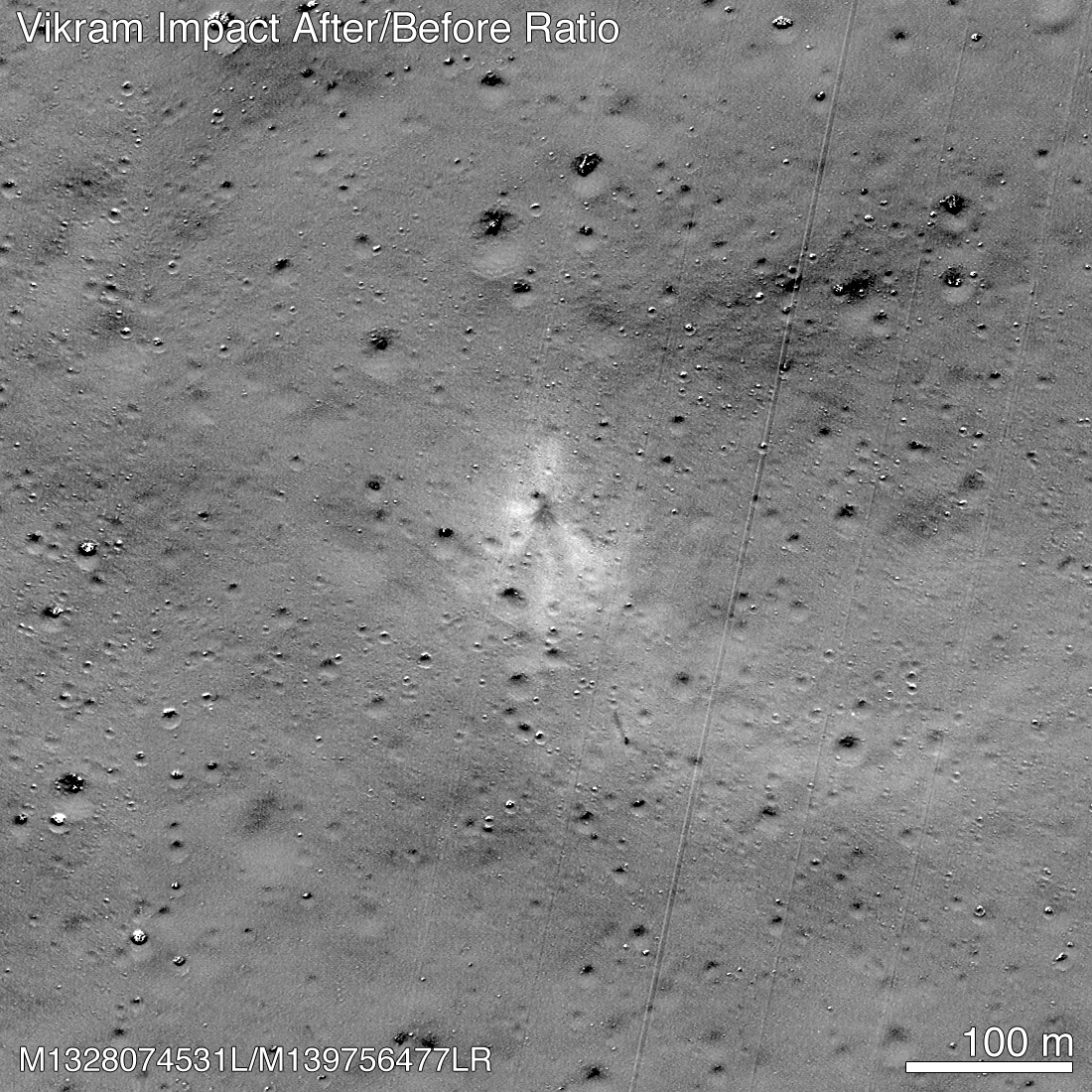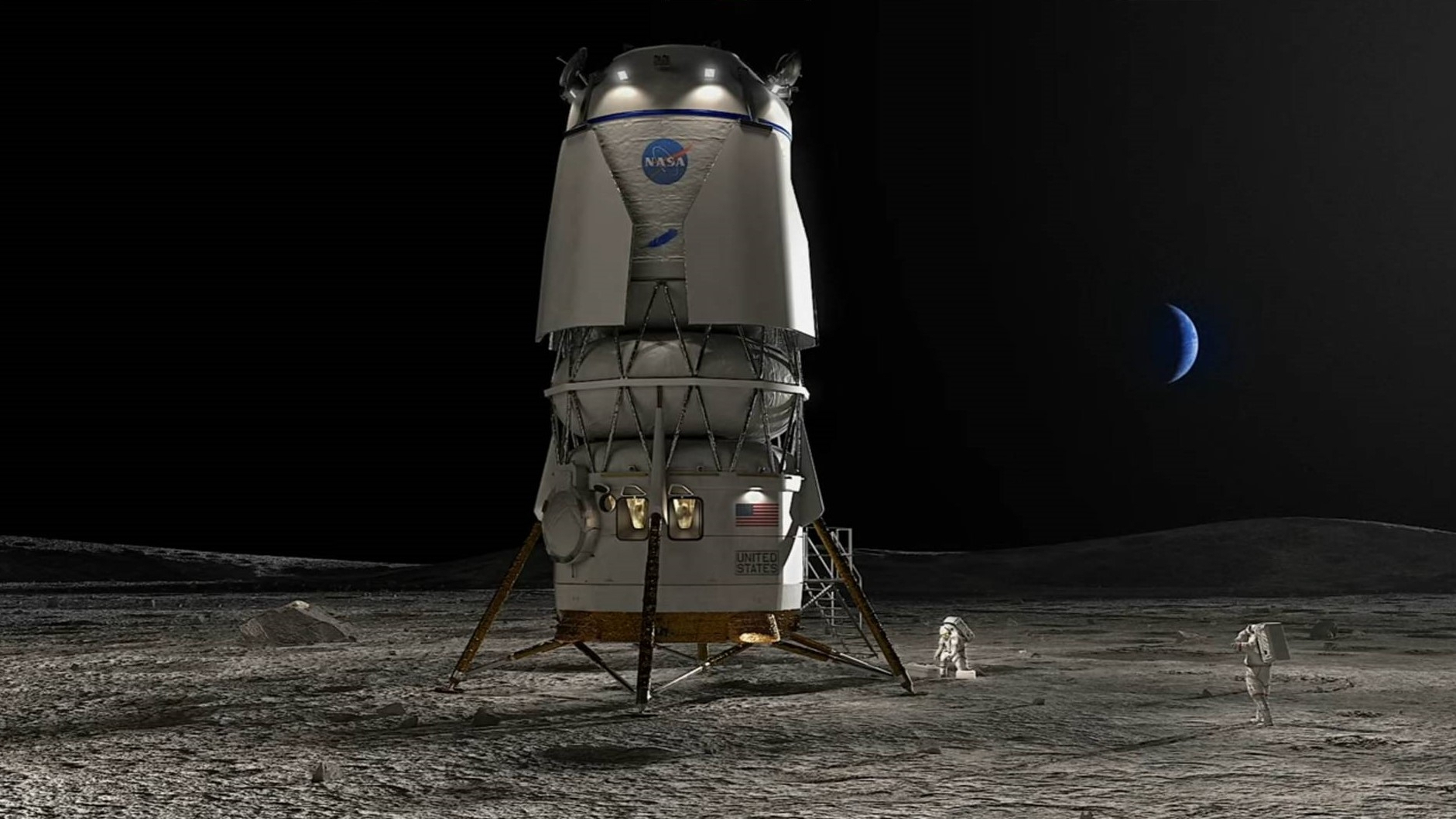Found! NASA Spots Crash Site and Debris from India's Lost Moon Lander

Scientists and amateurs alike have spent months combing through images from NASA's Lunar Reconnaissance Orbiter looking for the remains of India's moon lander — and that search has paid off.
Today (Dec. 2), the team that runs the Lunar Reconnaissance Orbiter Camera (LROC) instrument released images taken on Nov. 11 that show how the spacecraft has changed the surface of the moon. Imaging experts have spotted extensive evidence of the crash, including both debris from the craft and places where the collision seems to have stirred up the moon's regolith.
India's Chandrayaan-2 mission to the moon included a lander called Vikram, which was meant to gently land on the lunar surface near the south pole on Sept. 6. But near the end of the touchdown maneuver, Vikram went silent. India's space agency said it spotted the lander soon after, via the orbiter component of the mission, but the agency has not released those images, and NASA's long-standing Lunar Reconnaissance Orbiter hadn't had the same luck.
Related: India's Chandrayaan-2 Mission to the Moon in Photos
Now, that last part has changed. The NASA spacecraft's first pass over the impact site occurred on Sept. 17, and the LROC team published the resulting image later that month, even though they didn't think they had found any sign of the crash. But in that image, someone named Shanmuga Subramanian spotted one extraordinarily bright pixel and reached out to the LROC team, according to a NASA statement released today.

That tipoff, plus images with better lighting and resolution taken in mid-October and on Nov. 11, gave LROC specialists the details they needed to map the full scope of the surface changes caused by the hard landing. Newly released images show the impact crater itself, dark ejecta rays and light lines marking the debris field.
According to the statement, the largest pieces of debris are each about 4.5 feet (1.5 meters) across. Vikram measured 8.3 feet (2.5 m) in its longest dimension, according to materials released by India's space agency before the landing attempt.
Get the Space.com Newsletter
Breaking space news, the latest updates on rocket launches, skywatching events and more!
- India's Chandrayaan-2 Spacecraft Snaps Its First Picture of the Moon
- Amazing Moon Photos from NASA's Lunar Reconnaissance Orbiter
- Stunning Photos Show Earth from India's Spacecraft Headed to the Moon
Email Meghan Bartels at mbartels@space.com or follow her @meghanbartels. Follow us on Twitter @Spacedotcom and on Facebook.

Join our Space Forums to keep talking space on the latest missions, night sky and more! And if you have a news tip, correction or comment, let us know at: community@space.com.

Meghan is a senior writer at Space.com and has more than five years' experience as a science journalist based in New York City. She joined Space.com in July 2018, with previous writing published in outlets including Newsweek and Audubon. Meghan earned an MA in science journalism from New York University and a BA in classics from Georgetown University, and in her free time she enjoys reading and visiting museums. Follow her on Twitter at @meghanbartels.
-
Craig Jones So glad the crash site is identified, should give much information. Please never give up India! Your space program is admired internationally. Thank you so much for your commitment to the advancement of human knowledge!Reply -
natrajcdm ReplyCorn Holio said:India's space program is a farce. If it wasn't for their veiled industrial espionage and copying US technology, they'd have nothing.
We invented the number ZERO .We were way ahead in science and engineering before we became slave nation.Temples and sculptures shows our expertise in engineering ,you should visit India once and see the sculptures which are more than thousand years old.
https://www.livescience.com \203a 27853-who-invented-zero -
steve_foston Reply
That's a bit churlish, I don't think that you should denigrate any space agency's efforts - especially a developing country. We all learn by mistakes that's how we make progress.Corn Holio said:India's space program is a farce. If it wasn't for their veiled industrial espionage and copying US technology, they'd have nothing. -
jsimenhoff Reply
Friendly warning: if you don't have any evidence to back up your claims then you should not post. This is especially true when making accusations of espionage or any other type of attacks against organizations or people. This is less so the case when discussing theories and unexplained phenomena. Please refer to our Rules, Policies and Guidelines for further info.Corn Holio said:India's space program is a farce. If it wasn't for their veiled industrial espionage and copying US technology, they'd have nothing. -
A2B Reply
Man, they have been building ballistic missiles for decades, and we prohibited ourselves from providing any assistance in doing so because Pakistan was an ally. If they can deliver a bomb, they can deliver a probe. Their first Mars mission was a success, and I read they did it for about 100 Million USD. Including launch costs. Maybe they should be teaching cost-containment to our aerospace suppliers. We might actually get big things done, at a price congress would budget.Corn Holio said:India's space program is a farce. If it wasn't for their veiled industrial espionage and copying US technology, they'd have nothing.
